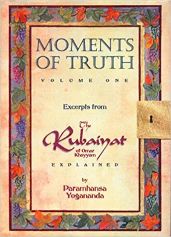‘Umar Khayyám au mirroir de quelques interprétations modernes, de FitzGerald à Hedáyat. Jacques Huré.
Luqmán 17 (2001) nr. 1, p. 7-15.
‘Umar Khayyám peut être vu, aujouid’hui, comme un «agitateur d’idées», le carrefour où se rassemblent ceux qui s’interrogent sur la portée des textes anciens d’où émane cette notion moderne qu’est l’incertitude du sens, ceux qui s’interrogent sur le rapport entre le discours spirituel et le discours philosophique, et, plus généralement ceux qui discutent de la pensee “oriëntale”, telle qu’elle doit prendre place dans tout débat ouvert aujourd’hui en Occident.
